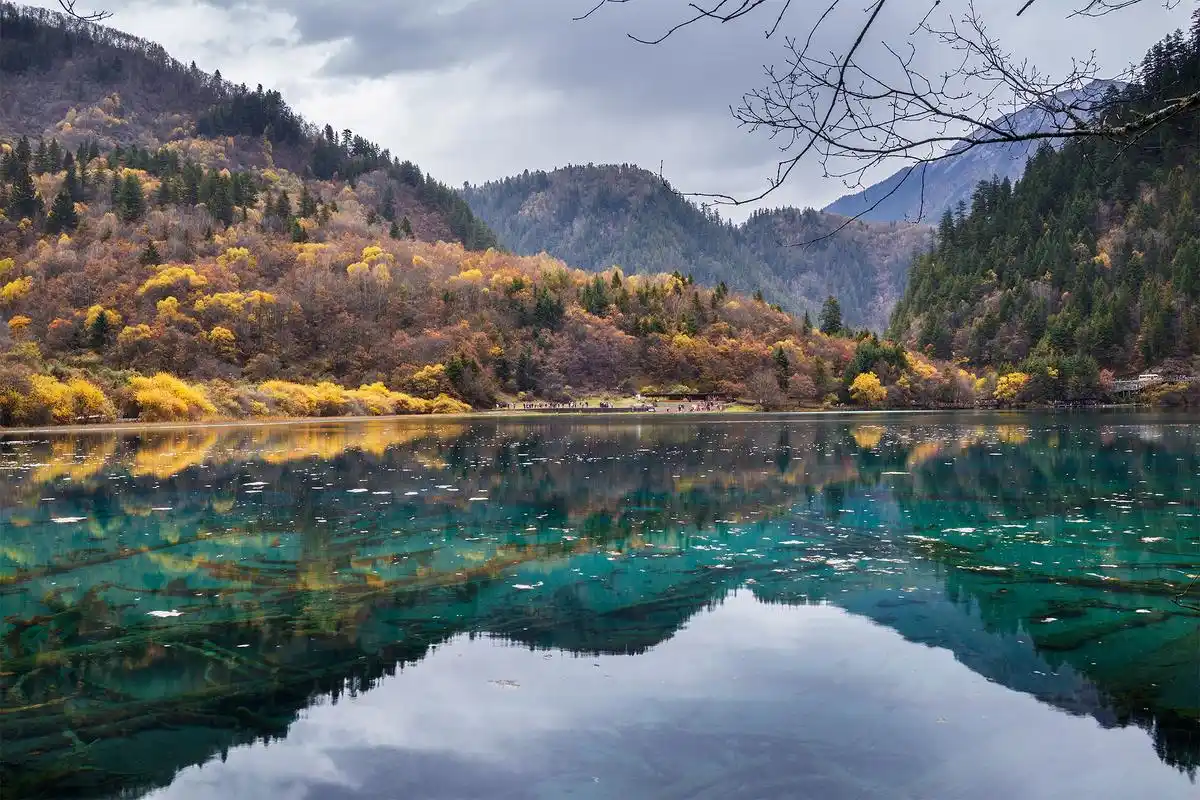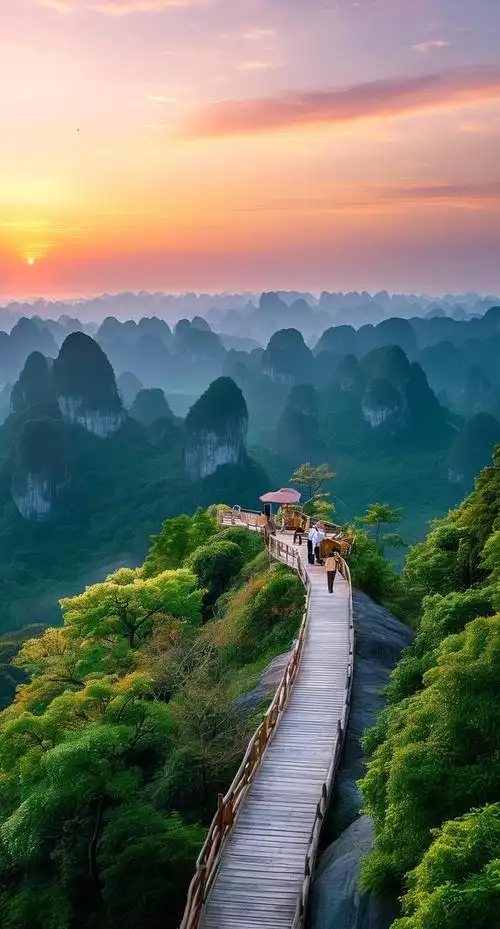China Travel
Cheap Travel in China: Taizhou’s Tiantai Mountain and Buddhist Heritage for Less
Discovering Serenity on a Shoestring: Tiantai Mountain and the Buddhist Heritage of Taizhou
China, a land of profound history and breathtaking landscapes, often evokes images of bustling megacities like Beijing and Shanghai or the iconic Great Wall. Yet, for the traveler seeking both cultural depth and natural beauty without straining their budget, the true gems lie in its lesser-known regions. The city of Taizhou in Zhejiang province, and specifically the sacred Tiantai Mountain, offers an unparalleled journey into the heart of Chinese Buddhism and stunning geography, all accessible for a fraction of the cost of more commercialized destinations.

The Allure of Taizhou and the Tiantai Range
Nestled in the southeastern coast of Zhejiang, Taizhou is a prefecture-level city that serves as a gateway to a world where ancient traditions seamlessly blend with verdant nature. Unlike its glamorous neighbors Hangzhou and Ningbo, Taizhou retains an authentic, unpretentious charm. Its economy is robust, driven by manufacturing, but its soul is rooted in the surrounding mountains and sea. The crown jewel of this region is undoubtedly the Tiantai Mountain range, a place of pilgrimage, poetry, and pristine beauty for over a millennium.
Tiantai Mountain is not just a single peak but a vast cultural and natural ecosystem. It is considered one of China's "Sacred Mountains," though it doesn't always feature on the standard list of five. Its significance is less about imperial endorsement and more about spiritual and philosophical influence. It was here that the Tiantai school of Buddhism, one of the most influential Mahayana Buddhist traditions, was founded. This school later spread to Japan as Tendai and to Korea as Cheontae, shaping East Asian Buddhist thought forever. For the traveler, this means every path, temple, and stream is imbued with a sense of history that is both tangible and profound.
Guoqing Temple: A Masterpiece of Devotion (Without the Price Tag)
No visit to Tiantai is complete without spending time at Guoqing Temple (国清寺, Guóqīng Sì). This is the cradle of the Tiantai school, founded in 598 AD during the Sui Dynasty. Unlike many famous Chinese temples that have been heavily reconstructed for tourism, Guoqing Temple feels authentically ancient and actively spiritual. The moss-covered stone paths, the towering ancient trees, and the serene atmosphere transport you back centuries.
The best part? Entry to this national treasure costs a mere 5 RMB (less than $1 USD), a symbolic fee that ensures its preservation while remaining accessible to all. This stands in stark contrast to the hefty entrance fees at more famous sites. Spend a morning wandering through its expansive complex. Admire the magnificent Hall of the Four Heavenly Kings, the serene Main Buddha Hall, and the quiet courtyard of the 1,300-year-old plum tree. You'll see monks going about their daily chores, devotees praying, and a sense of peaceful continuity that is priceless. For a truly immersive experience, the temple offers incredibly basic but ultra-cheap accommodation for pilgrims and visitors (around 25-50 RMB per night), allowing you to wake up to the sound of chanting bells and the misty mountain air.
Hiking the Sacred Trails: Nature’s Free Gallery
The natural landscape of Tiantai Mountain is a free-access gallery of waterfalls, forests, and peaks. The main attraction is the Shiliang Waterfall (石梁飞瀑, Shíliáng Fēipù), where a spectacular waterfall crashes through a unique natural stone bridge. While there is an entrance fee to this specific scenic area (around 60 RMB), the hundreds of kilometers of connecting trails and paths that weave through the national park are largely free to explore.
A must-do hike is the path from Guoqing Temple up to the Huading Peak (华顶峰, Huádǐng Fēng), the highest point in the range. The hike takes several hours and passes through tea plantations, bamboo forests, and smaller hermitages. The Huading Peak itself is especially magical in late spring when the vast fields of wild azaleas (rhododendrons) are in full, breathtaking bloom. Pack your own water and snacks from Taizhou's local markets, and you have a full day's adventure for the cost of your bus fare to the trailhead.
The Philosophical Trail: Following the Footsteps of Monks
Tiantai’s heritage is a journey of the mind as much as the body. A key figure is the monk Zhiyi (538–597 AD), the formal founder of the Tiantai school. His teachings emphasized the "Three Truths" and the concept of "One Vehicle," seeking to harmonize all Buddhist sutras into a cohesive system. While this may sound academic, its physical manifestation is in the temples and caves where he meditated.
Seek out the smaller, often-free sites like the ruins of the Zhiyi’s meditation cave. Walking these quiet paths, you walk the same ground as countless monks and pilgrims who have sought enlightenment for over 1,400 years. It’s a form of travel that costs nothing but offers immense spiritual and intellectual rewards.
Practical Budget Tips for the Frugal Traveler
Getting to Taizhou is the first step. High-speed trains connect it to Shanghai (approx. 3 hours) and Hangzhou (approx. 2 hours) for a reasonable price (around 150-200 RMB). Taizhou itself is a budget-friendly city.
- Accommodation: Skip international hotel chains. Opt for local budget hotels or guesthouses (连锁酒店, liànsuǒ jiǔdiàn) like Home Inn (如家, Rújiā) or 7 Days Inn (7天, 7 Tiān), where a clean, comfortable room can be found for 120-200 RMB per night.
- Food: Taizhou is a seafood paradise, but you don't need fancy restaurants. The real culinary adventure is in the street food and local noodle shops. A bowl of delicious local noodles (台州面条, Tāizhōu miàntiáo) or a selection of dumplings (饺子, jiǎozi) will cost between 15-30 RMB. Visit the local night markets for cheap, fresh, and delicious eats.
- Transport: From Taizhou city, take a local public bus to Tiantai County (approx. 10 RMB), and from there, a local bus or a shared taxi will take you to the base of the mountain or directly to Guoqing Temple for a minimal fee. This is vastly cheaper than hiring a private car.
- Timing: Visit on weekdays to avoid domestic tourist crowds. The best seasons are spring (April-May) for the flowers and autumn (September-October) for clear skies and comfortable hiking temperatures.
A Journey of Richness, Not Expense
Traveling to Tiantai Mountain in Taizhou is a reminder that the most valuable experiences are often not the most expensive. It is a destination that demands engagement—with its history, its philosophy, and its natural splendor. It’s about the feeling of the cool temple stone under your hand, the sight of mist weaving through ancient pines, and the profound silence at the top of a peak. You leave not with souvenirs from gift shops, but with a sense of peace and a deeper understanding of a philosophy that has shaped a continent. In Taizhou, you discover that the cheapest travel can indeed be the richest, offering a authentic and unforgettable glimpse into the soul of China.
-
上一篇

Affordable China Destinations: Shaoxing’s Lu Xun Former Residence and Water Town Boats on a Budget
**AffordableChinaDestinations:Shaoxing’sLuXunFormerResidenceandWaterTo
-
下一篇

Budget China: Wenzhou’s Yandang Mountain and Seafood Stalls Without Overspending
**BudgetChina:Wenzhou’sYandangMountainandSeafoodStallsWithoutOverspendi
相关文章
- Budget China: Fuyang’s Ecological Parks and Rural Scenery for Under $35 a Day
- Cheap Travel in China: Bozhou’s Traditional Medicine Culture and Ancient Streets on a Budget
- Affordable China Destinations: Chizhou’s Jiuhua Mountain and Buddhist Sites on a Budget
- Budget-Friendly China: Huangshan City’s Villages and Tea Plantations on a Shoestring
- Cheap China Travel: Jingdezhen’s Porcelain Culture and Workshops for Less
- Affordable China Getaways: Yingtan’s Longhu Mountain and Taoist Heritage on a Budget
- Budget China: Nanchang’s Tengwang Pavilion and Gan River Night Views for Under $40 a Day
- Cheap Travel in China: Jiujiang’s Poyang Lake and Lushan Mountain Gateway on a Budget
- Affordable China Destinations: Yichun’s(Mingyue Mountain) and Hot Springs for Less
- Budget-Friendly China: Shangrao’s Sanqing Mountain and Ancient Villages on a Shoestring
发表评论
评论列表
- 这篇文章还没有收到评论,赶紧来抢沙发吧~

